Breaking Ties with Great Britain
History
Abigail Adams
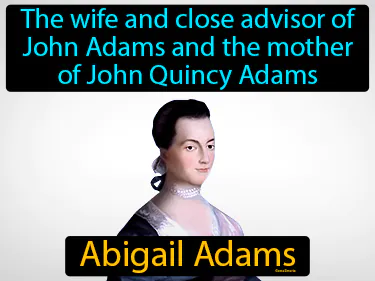
The wife and close advisor of John Adams and the mother of John Quincy Adams. Abigail Adams. Abigail Adams was an early advocate for women's rights and her correspondence provides valuable insight into the American Revolution.
Benedict Arnold
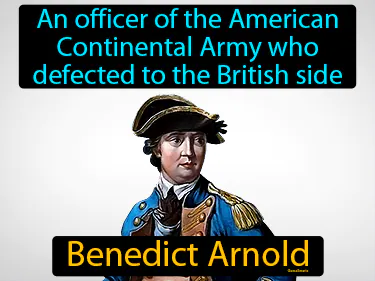
An officer of the American Continental Army who defected to the British side. Benedict Arnold. Benedict Arnold is known in history as a traitor for switching allegiance from the American side to the British during the Revolutionary War.
Boston Massacre
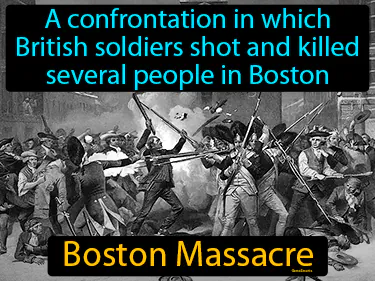
A confrontation in which British soldiers shot and killed several people in Boston. The Boston Massacre was an event in 1770 where British troops fired on and killed American colonists, heightening tensions leading to the American Revolution.
boycott
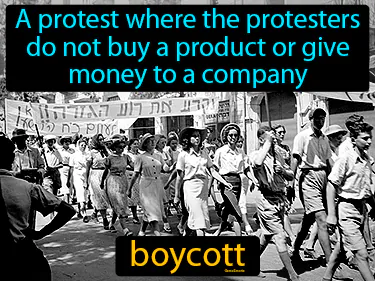
A protest where the protesters do not buy a product or give money to a company. Boycott. Historically, a boycott is a method used to pressure entities to make changes by refusing to purchase their goods or services.
Continental army
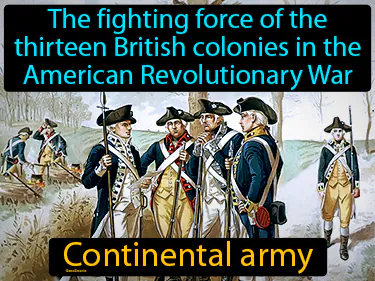
The fighting force of the thirteen British colonies in the American Revolutionary War. Continental Army. It was the unified military force established by the colonies to fight against British rule during the American Revolution.
Crispus Attucks
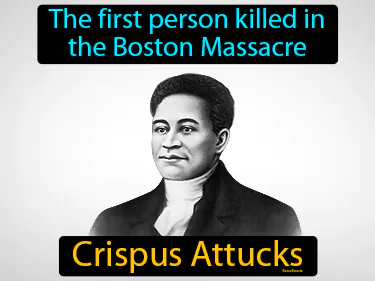
The first person killed in the Boston Massacre Crispus Attucks. He was an African American man who became a symbol of the fight for freedom during the American Revolution.
Declaration of Independence
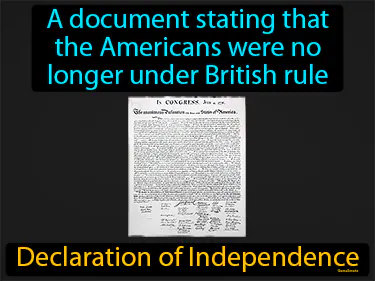
A document stating that the Americans were no longer under British rule. Declaration of Independence. It is a historic statement that announced American freedom from British control.
Ethan Allen
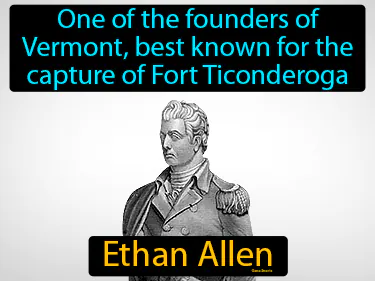
One of the founders of Vermont, best known for the capture of Fort Ticonderoga, is Ethan Allen. Ethan Allen was a Revolutionary War hero who played a key role in early American history.
Henry Knox
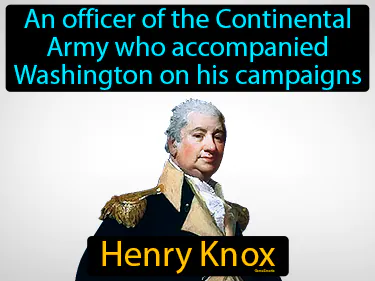
An officer of the Continental Army who accompanied Washington on his campaigns. Henry Knox. He was a trusted Revolutionary War general and the first U.S. Secretary of War.
John Hancock
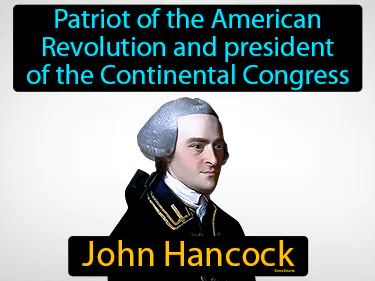
Patriot of the American Revolution and president of the Continental Congress. John Hancock. John Hancock was a key leader in Americas fight for independence and is best known for his bold signature on the Declaration of Independence.
John Parker
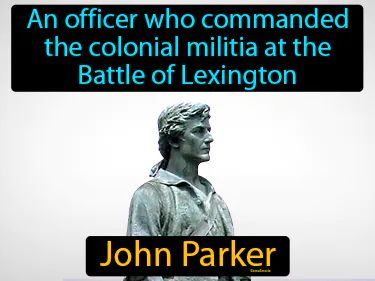
An officer who commanded the colonial militia at the Battle of Lexington. John Parker. John Parker was a captain in the American Revolutionary War known for leading the militia during the first skirmish at Lexington.
Loyalists
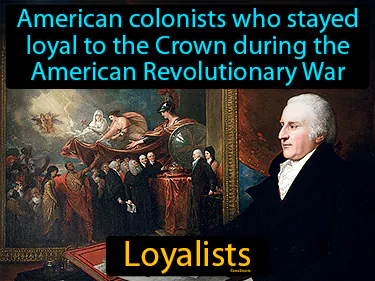
American colonists who stayed loyal to the Crown during the American Revolutionary War. Loyalists. Loyalists were colonists who supported British rule during the American Revolution.
militia
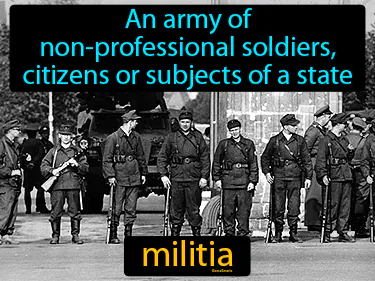
An army of non-professional soldiers, citizens or subjects of a state. militia. In history, a militia refers to a group of ordinary people who come together to form a temporary military force for defense or emergency purposes.
minutemen
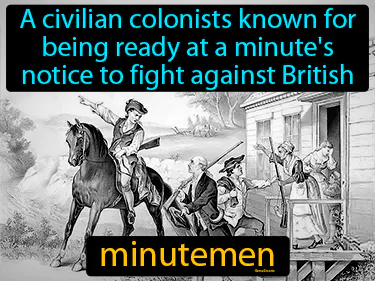
A civilian colonists known for being ready at a minute's notice to fight against British. Minutemen were American colonial militia members who were prepared to quickly respond to threats during the American Revolutionary War.
Patrick Henry
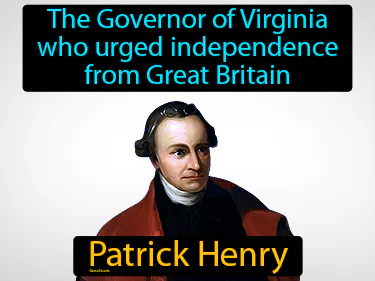
The Governor of Virginia who urged independence from Great Britain. Patrick Henry. Patrick Henry was a passionate leader and speaker known for his role in advocating for American independence.
Patriots
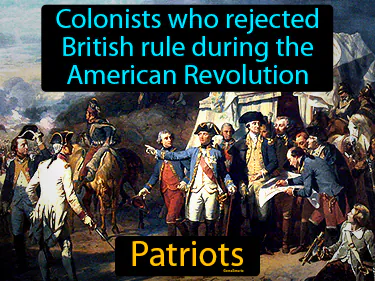
Colonists who rejected British rule during the American Revolution. Patriots. Patriots were American colonists who fought for independence from British control in the 18th century.
Paul Revere
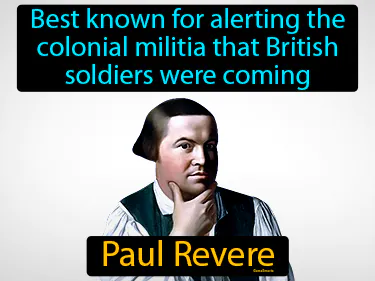
Best known for alerting the colonial militia that British soldiers were coming Paul Revere. He was a patriot in the American Revolution who made a famous midnight ride to warn of the British advance.
repeal
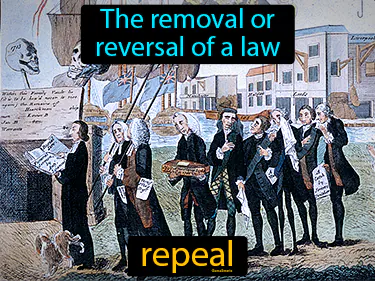
The removal or reversal of a law. Repeal. In history, repeal is when a government officially cancels or ends an existing law.
Samuel Adams
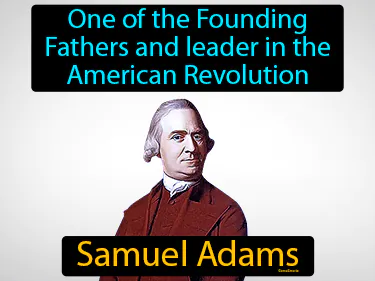
One of the Founding Fathers and leader in the American Revolution, Samuel Adams. Samuel Adams was a key organizer of protests against British policies that led to the American Revolution.
Stamp Act
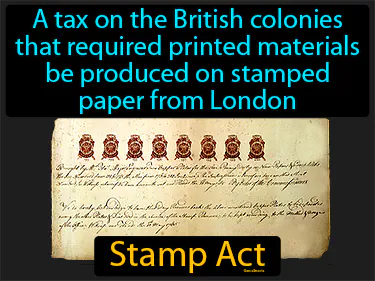
A tax on the British colonies that required printed materials be produced on stamped paper from London. Stamp Act. The Stamp Act was a law imposed by Britain in 1765 requiring colonies to pay a tax on paper goods, fueling discontent that led to the American Revolution.
Thomas Gage
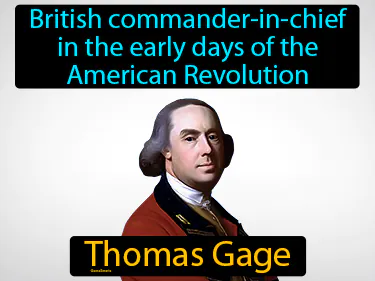
British commander-in-chief in the early days of the American Revolution. Thomas Gage. Thomas Gage was a British general who enforced British rule in the colonies, which contributed to the tensions leading to the American Revolution.
Thomas Jefferson
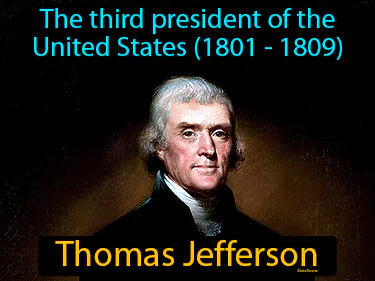
The third president of the United States 1801 - 1809. Thomas Jefferson. Thomas Jefferson was a founding father and the principal author of the Declaration of Independence.
Thomas Paine
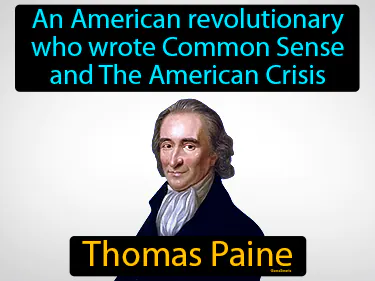
An American revolutionary who wrote Common Sense and The American Crisis. Thomas Paine. Thomas Paine was a writer who inspired American colonists to seek independence from Britain.
traitor
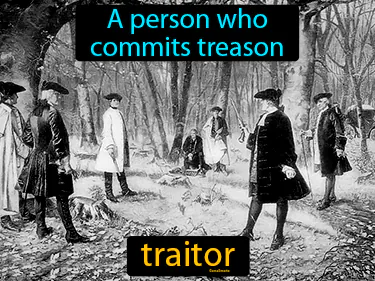
A person who commits treason. Traitor. In history, a traitor is someone who betrays their country or group by aiding an enemy.
William Dawes
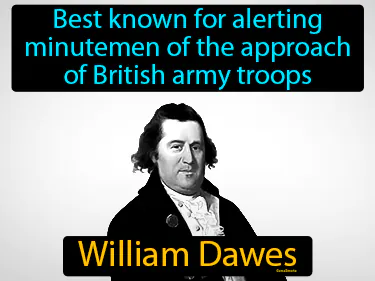
Best known for alerting minutemen of the approach of British army troops, William Dawes. William Dawes was a colonial American patriot who rode with Paul Revere to warn of the British advance toward Lexington and Concord in 1775.
William Howe
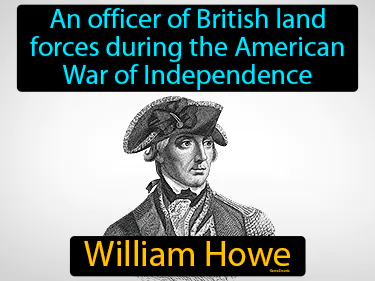
An officer of British land forces during the American War of Independence. William Howe. William Howe was a British general who commanded forces against American revolutionaries in the late 18th century.